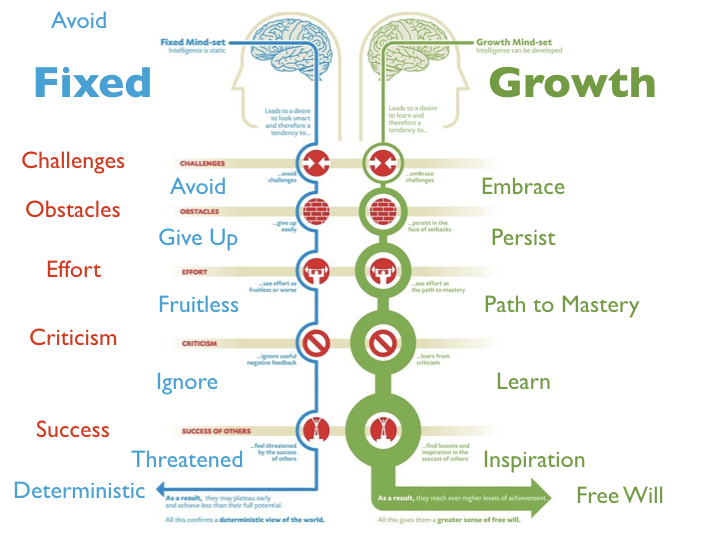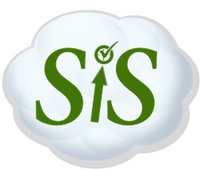Hi,
Welcome to the Intelligence Augmentation Newsletter.
One of Mark Twain’s quotes that I admire greatly:
“I didn’t have time to write a short letter, so I wrote a long one instead.â€
Going forward, I hope to work even harder to keep this newsletter brief with links to more in-depth explanations so you have a choice which version works best for you.
This newsletter starts with some explanation of terminology to be clear about what is meant.
The three big themes I will be covering are:
- Intelligence Augmentation
- Innovation Solutions
- Influencing Future Social impacts for the better.
Intelligence Augmentation (IA)
Intelligence has several definitions:
- the ability to acquire and apply knowledge and skills
- the ability to comprehend; to understand and profit from experience
- gathering and interpreting secret information about an enemy
- information about recent and important events
Why Augmentation? Augmentation is increasing intelligence through learning, experimenting, processing, modelling, taking courses, and using tools. Highly recommended because we all have the potential to grow. The premise is that intelligence can be developed which is further explained in the Growth Mindset section.
All of these aspects of intelligence and augmentation will be covered in this newsletter in the context of thriving through lifelong learning.
Artificial Intelligence (AI) needs to be mentioned as a contrasting approach because it has received a lot of hype and has emphasized how information technology intelligence can replace humans. Intelligence Augmentation (IA) puts the emphasis on developing synergistic intelligence. This can be done by combining different types of intelligence, lifelong learning, and education. The hope is that more symbiotic interactions combining the best of human and computer intelligence will become predominant instead of just replacing humans with artificial intelligence and robots. New types of education leveraging human intelligence are needed to excel in a rapidly changing environment of greater complexity. We all have a role to play in making this happen by getting informed, making decisions, and educating others.
Innovation Solutions
My company is called Sharp Innovation Solutions because my whole career has been about using information technology to help manage knowledge, progress with inventions, and solve important problems. It can seem to be a paradox but by automating some repetitive processes and becoming more organized with the information we need to function, we can have the freedom to be more creative, productive, and lead better lives.
Social Impacts
Automation, however, is also creating justifiable fear that people will be marginalized, distracted, and be displaced by robots and information systems. Some technological changes have been dehumanizing and have created social, attention, and privacy challenges. Social networks like Facebook have created major issues [see The Great Hack] such as anxiety, spreading misinformation, using propaganda to threaten democratic governance, and surveillance invasions of privacy being used for wide-scale manipulation. Some types of work are becoming obsolete while in other areas education and skill requirements are drastically changing. Forecasts have estimated that people typically will need to reinvent themselves at least 5-7 times in their lifetime. Revolutionary types of disruptions are making career transitions difficult and people need to maintain quality of life longer as population demographics shift with more senior citizens living today than ever before in human history. Financial systems, political processes, education systems, etc. need to change to meet these new challenges.
Mother Teresa:
“Few of us can do great things, but all of us can do small things with great love.â€
Table of Contents:
The Importance of Having a Growth Mindset

Figure 1: Fixed vs Growth Mindset regarding Intelligence
Carole Dweck’s book, Mindset: The New Psychology of Success described how intelligence could be developed rather than being fixed at childbirth. Figure 1 contrasts the growth mindset to the fixed mindset and how important the growth mindset is for having a constructive response to dealing with challenges, obstacles, effort, criticism, and success. The age-old argument of whether life is determined by destiny or free will is strongly argued in favour of free will since it empowers individuals to exert whatever influence they can to achieve desired results rather than being passive and just letting things happen. This does not mean that anything is possible but just that the growth mindset supports doing what we can to achieve our potential.
Interdependence; Insights on Giving and Taking
Practical intelligence for interacting with people in 4 parts:
- The 7 Habits of Highly Effective People: Powerful Lessons in Personal Change
- The 8th Habit: From Effectiveness to Greatness
- All You Have to do is Ask: How to Master the Most Important Skill for Success
- Are You a Giver or a Taker?, Adam Grant TED Video, Give and Take
The 7 Habits of Highly Effective People is one of the most influential books I have studied and applied. It was so influential that I was a facilitator of a 7 Habits program at my work for several years. The model is principle-based with the first 3 habits on developing independence and the next 3 on developing interdependence. Ultimately the 8th habit was added to go from effectiveness to greatness by finding your voice (and purpose) and inspiring others to find theirs.
In the domain of interdependence, All You Have to do is Ask, is a book which provides guidance on developing the skills of achieving more and being well by collaborating with people. Many people struggle with asking for help but is not a sign of weakness to recognize and have the courage to ask for help. One example where it has taken years to get this message accepted is on the topic of mental health.Â
In, Are You a Giver or a Taker?, organizational psychologist Adam Grant breaks down these personalities (and also matchers) to offer simple strategies to promote a culture of generosity and keep self-serving people from taking more than their share. Watch the free TED video first to learn the success factors and benefits of putting generosity into practice and if you want more details read Give and Take: A Revolutionary Approach to Success.
The Great Hack
Internet surveillance data is used by totalitarian governments to monitor and control their citizens. In the free world, this is done by surveillance capitalism business models that collect consumer data to support ad-driven business models by companies like Google and Facebook.
The Great Hack is a Netflix documentary on how Facebook psychological profile data from millions of people were used by Cambridge Analytica’s “electoral influence services (aka weapons-grade propaganda tools)†to target key voters affecting the results of the original Brexit vote and 2016 US presidential election.
Cambridge Analytica, the political consultancy firm of which Steve Bannon was vice-president, started working with Trump campaign aide Brad Parscale, alongside employees from Facebook and Google. Two months later, Donald Trump sacked Paul Manafort as his campaign manager and appointed Bannon to lead his campaign. The campaign spent $6m on Cambridge Analytica’s services.
These types of capabilities were also used against many other countries and are an ongoing threat to democratic elections.
Facebook has been pressured against their will to start having independent parties do fact-checking to reduce the spread of lies, deception, and misinformation on their social network but their proposal is to exclude fact-checking for political messages. Google has a much more progressive policy on political information on YouTube where it includes fact checking and removal of videos that have been manipulated to spread false information.
Other good references on the evils of Facebook are the movie The Circle and the book Zucked: Waking Up to the Facebook Catastrophe by Roger McNamee who was an original investor in Facebook.
In the Queue
What is Intelligence and Why does it Matter?
There are many theories of intelligence and also misunderstandings that can disrupt progress.
How can we bridge the Political Divide to make Progress Together?
Issues with social networks have caused a decrease in understanding and more divisiveness. How can the wisdom of crowds be supported?
Feedback?
I am hoping this could be the start of a long and mutually beneficial relationship. Perhaps it can even grow into membership in a lifelong learning community of personal and/or business development to prosper in our brave new world.
I will be publishing updates at least once a month on what I am thinking, seeing, and doing. I would also like to hear back from you so we can establish a dialogue.
Which topics are most useful to you? Which other topics would you prefer?
What suggestions do you have for improvement?
Practice knowledge mobilization (sharing) if you know someone who might benefit from being a subscriber.
Please give this newsletter a try but if you don’t find it valuable, you can unsubscribe.

Hi Glen, Liked the newsletter. A couple of questions – do you believe that all people can take advantage of intelligence augmentation – even if they are not the scholastic type?
As well, I’m not sure about your argument for free will – just because we seem capable of improving our lot does not mean we have free will – it could as some philosophers say, just be an illusion. – Paul
Paul,
Good questions.
I believe a lot of people can take advantage of intelligence augmentation if they are of a mindset to learn in some way. They don’t have to be scholastic, a.k.a. academically inclined, in the traditional education sense. Marie Forleo put it well in her book “Everything is Figureoutable” which makes the case for an optimistic attitude of possibility which encourages trying.
Guilty as charged in that I am in favour of taking a free will approach as a less risky choice for living. Philosophy gets into issues with ever really knowing something for sure and intelligent people are open to the possibility that they may be wrong about some things they feel fairly certain about. My argument is more about the consequences of believing in destiny vs free will and recognizing the limitations. If you act on a belief in destiny this could be demotivating to take any action because whatever is destined will happen regardless of what you do. So why bother putting in effort to change something that is not changeable. If you are wrong, however, you haven’t lived to your full potential. On the other hand, if you believe in free will and put in a lot of effort to influence what you think is possible to change you will increase the probability of getting the results you are working towards. If you are wrong in this belief in free will you will have put in some unnecessary effort but you are no worse off because what was destined will still happen. In other words, people can argue forever about destiny vs free will but which scenario is worse: possibly not living up to your potential or putting in some unnecessary effort. To me a theory (i.e. destiny) that promotes choosing not making an effort because it might not make a difference is the lazy approach which could potentially ruin your life if you are wrong. I choose not to take that risk.